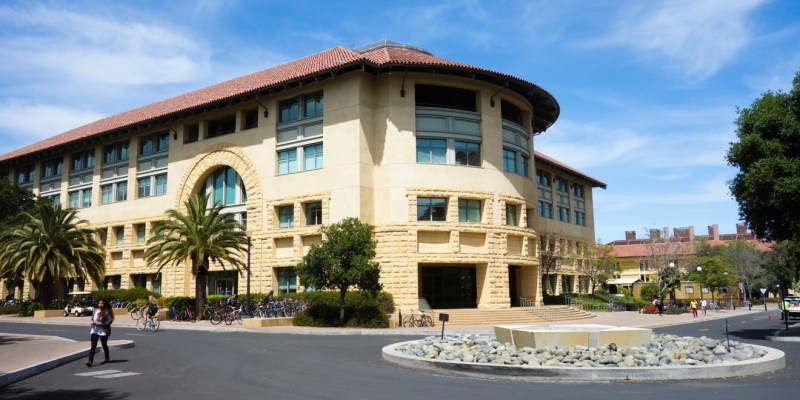Stanford paused its research partnership with the Chinese telecom conglomerate Huawei in mid-December in light of the U.S. government’s warning against potential cybersecurity risks associated with the company.
Huawei is the world’s largest supplier of the network equipments used by phone and internet companies. Suspected of allowing unauthorized surveillance and espionage by the Chinese government, the company’s CFO Meng Wanzhou was arrested by Canadian authorities in December for violating U.S. sanctions against Iran. Most recently, the U.S. Justice Department filed 23 criminal charges on Jan. 28, including stealing trade secrets from T-Mobile. Huawei denied all allegations, stating that they are “committed to be on the side of our customers when it comes to cyber security and protecting privacy.”
At Stanford, Huawei is a member of the Stanford Artificial Intelligence Laboratory’s (SAIL) AI Affiliates Program and the Engineering School’s SystemX Alliance, a program that brings together Stanford researchers and private corporations to tackle various engineering challenges.
According to University spokesperson E.J. Miranda, Stanford “has established a moratorium on new engagements, gifts, affiliate membership fees and other support from Huawei.”
“We are sensitive to the federal government’s concerns about technologies being appropriated by other countries to the detriment of U.S. national security,” Miranda added. “Our international engagement is guided by university policies and in compliance with federal regulation.”
Miranda noted that Stanford will “continue to evaluate legal and regulatory developments” surrounding Huawei in light of the recent indictment, but said the University found “nothing inappropriate” from the University’s past collaboration with Huawei.
Brian Huang, an industrial contracts officer at Stanford, said that affiliate programs like SAIL and SystemX “are just a window into the current research that’s going on at Stanford.”
“There’s no offers of any rights to intellectual property,” he said.
Huang added that corporate research sponsorship does not automatically translate into licenses of inventions.
Nevertheless, the SAIL affiliate program provides companies with “early, facilitated access to research, faculty and students” and “invitations to all retreats, conferences and seminars” in exchange for $200,000 in annual sponsorship fees, according to SAIL’s website. Similarly, for $175,000 a year, companies in the SystemX affiliate program can work closely with Stanford researchers on specific projects.
The University established the moratorium on collaborations with Huawei at the recommendation of Kathryn Moler, vice provost and dean of research. After Provost Persis Drell and President Marc Tessier-Lavigne approved the suggestion, the Faculty Senate Committee on Research was informed of the decision, according to Miranda.
Stanford’s severing of ties follows growing sanctions against Huawei from Western countries and companies. Despite Huawei’s denial of any wrongdoing, the European telecom company Vodafone recently announced it would stop purchasing Huawei equipment due to security concerns. Poland arrested a Huawei employee in early January on charges of spying.
Additionally, the CFO Meng’s arrest has worsened U.S.-China relations already strained by a trade war, with the Chinese Foreign Ministry spokesperson Geng Shuang stating that the move indicates “strong political motives and manipulation” from the U.S. government.
Huawei’s sidelining comes at a time when many countries are planning on upgrading to a 5G cellular network. Huawei sells much of the equipment that would underlie such a shift. Australia banned Huawei from developing a 5G network for the country. Many European companies have also expressed concern about Huawei taking part in their 5G technology.
On the collegiate level, University of California at San Diego and Oxford University have suspended research ties with Huawei.
U.S. universities are also scrapping Huawei equipment used on campus. The National Defense Authorization Act (NDAA), which President Trump signed in August, requires schools receiving federal funding not to use products from several blacklisted companies, including Huawei. Steve Eisner, Stanford’s director of export compliance, told Reuters that Stanford searched campus for banned devices but didn’t find anything requiring removal. Across the Bay, Berkeley had to replace a Huawei video-conferencing system, according to Reuters.
“The current pause affects only Huawei,” Miranda said. “We continue to be committed to international collaboration for the advancement of knowledge.”
This article has been corrected to reflect that the Faculty Senate Committee was informed of the Provost and President’s decision to enact the moratorium, rather than partaking in the approval. The Daily regrets this error.
Contact Nicholas Midler at midler ‘at’ stanford.edu and Daniel Yang at danieljy ‘at’ stanford.edu.
